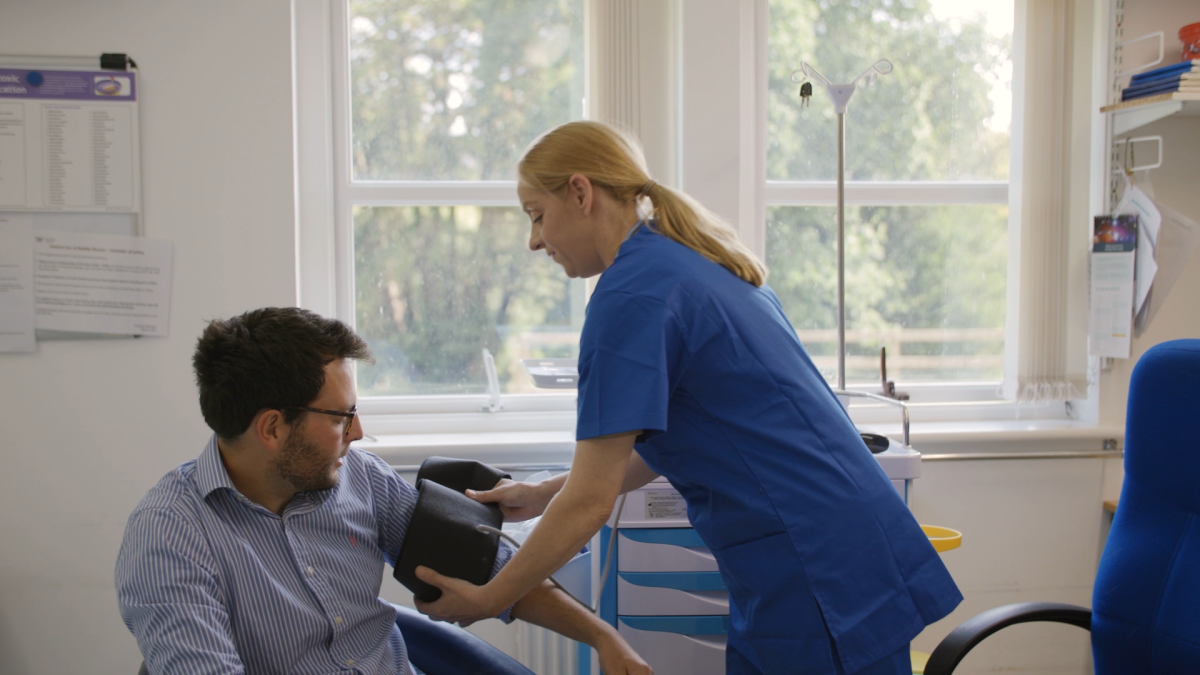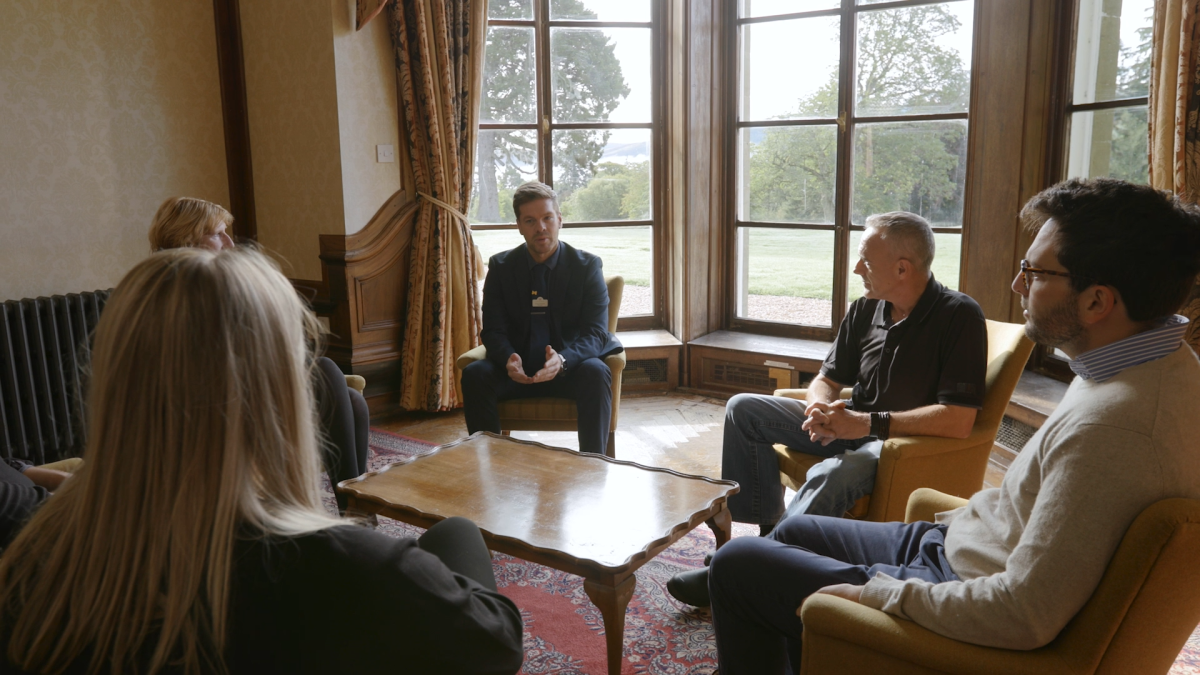
Mental Health Disorders and Addiction
Castle Craig provides specialised dual diagnosis treatment for individuals managing mental health disorders alongside drug and alcohol addiction. Recognised as one of the UK’s leading and longest-serving family-run substance misuse rehab centres, Castle Craig has been delivering expert care and support for over 30 years, offering tailored programmes to meet diverse recovery needs.
For those seeking residential inpatient mental health and addiction treatment, Castle Craig offers comprehensive options, including 28-day rehab and long-term dual diagnosis treatment. Renowned among dual diagnosis addiction treatment centres, Castle Craig provides thorough dual diagnosis assessments to design personalised care plans. If you are seeking inpatient mental health and addiction treatment, you can contact Castle Craig on 01721 546 263, or read on to learn more.
What is Dual Diagnosis?
Dual diagnosis, also known as a co-occurring disorder, is when an individual is diagnosed with an addiction alongside other mental health disorders, such as anxiety or depression. It can include a singular mental health disorder or multiple. This can make recovery more complicated because, as you start to deal with drug or alcohol addiction, underlying mental health issues may be unmasked.
This can often be because people use addictive substances and behaviours such as drugs, alcohol and gambling as a coping strategy for their mental health challenges. For many, mental health issues can also arise from long-term alcoholism and drug misuse, creating a cycle that’s difficult to break.
What is Dual Diagnosis Rehab Treatment?
Dual diagnosis rehab treatment provides care for individuals dealing with both mental health issues and substance use disorders. It integrates addiction recovery with mental health support to ensure both conditions are addressed simultaneously. This approach, known as co-occurring disorders treatment, combines therapy for addiction and mental health into a structured, tailored programme for recovery.
Commonly treated conditions in dual diagnosis programmes include rehab for substance abuse and depression, anxiety and addiction treatment, and PTSD and addiction therapy. Inpatient dual diagnosis rehab centres also address complex cases like co-existing disorders involving behavioural health and addiction. Comprehensive dual diagnosis care ensures individuals receive the psychiatric and addiction rehab programmes they need for sustainable recovery. To find out more about your treatment options, call Castle Craig on 01721 546 263.

Inpatient Dual Diagnosis Rehab Treatment
What is a Dual Diagnosis Assessment?
A dual diagnosis assessment is designed to identify co-occurring mental health and substance use disorders. It involves a comprehensive psychiatric assessment and the use of dual diagnosis screening tools to evaluate an individual’s psychological and substance misuse challenges. This integrated diagnostic process ensures an accurate addiction and mental health diagnosis, paving the way for effective treatment planning.
Castle Craig provides dual condition assessment as part of the inpatient rehab admissions process. The experienced and qualified team at Castle Craig conducts private and confidential evaluations for co-existing conditions. Following the assessment, a tailored treatment programme is developed to meet each individual’s unique needs. From mental health and addiction screening to substance misuse and mental health evaluation, Castle Craig ensures thorough and compassionate care.
It is crucial to have a thorough assessment, known as a ‘biopsychosocial assessment’, to identify dual diagnosis so that a personalised treatment plan can be created. Treatment under the care of a qualified psychotherapist in an inpatient rehab setting will lead to the best chance of success in recovery.
Types of Inpatient Co-Occurring Disorder Treatment Centres
Co-occurring disorder treatment centres provide comprehensive care for individuals struggling with mental health disorders and substance use issues simultaneously. These centres use specialised programmes to address the unique challenges of patients with dual diagnoses. Below are various types of inpatient treatment centres tailored to diverse needs and circumstances.
-
Long-Term Residential Dual Diagnosis Treatment
Long-term residential treatment provides extended care for individuals who require ongoing support for dual diagnoses. Longer term rehabilitation programmes often last several months and offer an immersive environment, combining therapy, skill-building, and relapse prevention techniques. They cater to those with complex or deeply entrenched co-occurring disorders that need sustained attention.
Individuals benefit from having access to integrated addiction and mental health care under one roof. By focusing on comprehensive dual diagnosis recovery, these rehab facilities help residents build resilience and establish lasting recovery structures. Regular evaluations and personalised treatment adjustments ensure that progress is consistent and effective.
-
Private Luxury Dual Diagnosis Treatment
Private luxury dual diagnosis treatment centres focus on providing high-end, exclusive care for patients with dual diagnoses. High-end rehab facilities often offer private accommodations, gourmet meals, and recreational amenities that enhance the healing process. The serene and discreet setting caters to individuals seeking confidentiality and comfort during treatment.
Highly skilled professionals deliver intensive therapy tailored to the individual’s needs. The blend of evidence-based approaches and holistic treatments, such as mindfulness practices and bespoke wellness programmes, ensures a well-rounded path to recovery. These centres aim to create a tranquil environment for deep healing and sustainable progress.
-
Residential Dual Diagnosis Treatment for Women
Women-only dual diagnosis treatment centres provide a safe, supportive space for those addressing co-occurring mental health and addiction issues. These co-occurring disorder programmes often explore topics such as trauma, self-esteem, and relationships that disproportionately affect women. Group therapy with female peers fosters a unique sense of community and understanding.
Personalised care plans ensure that the treatment aligns with each woman’s needs and circumstances. By addressing barriers specific to women, such as societal pressures and family responsibilities, these centres empower individuals to overcome challenges and rebuild their lives effectively.
-
Trauma-Informed Inpatient Addiction Treatment Programmes
Trauma-informed addiction treatment programmes specialise in assisting individuals coping with past traumas alongside drug or alcohol addiction. Specialist rehab centres acknowledge the relationship between trauma and substance misuse, offering a mix of evidence-based and complementary therapies to help process painful memories safely.
The approach also integrates dual diagnosis treatment for conditions such as PTSD and addiction. The goal is to foster emotional healing, reduce triggers, and build healthier coping mechanisms. Trauma-informed care ensures that every patient feels understood, respected, and fully supported throughout their recovery.
-
Residential Programmes for Teens and Adolescents
Teen-focused dual diagnosis rehab programmes typically address the unique psychological and developmental needs of young individuals facing co-occurring disorders. These facilities combine mental health therapy and substance misuse treatment with age-appropriate interventions to engage young patients effectively.
Comprehensive care plans for adolescents often involve family therapy to ensure a strong support system at home. Educational services are also incorporated, allowing young people to continue their studies while working towards mental and emotional stability.
-
Inpatient Mental Health and Alcohol Addiction Rehab
Alcohol addiction rehab centres with a focus on mental health offer targeted dual diagnosis care for individuals battling alcohol dependency alongside disorders like depression or anxiety. These alcohol use disorder programmes are robust, blending therapeutic approaches like CBT (Cognitive Behavioural Therapy) with medical detoxification (if needed).
By addressing both the psychological roots and physical effects of addiction, these recovery programmes create a balanced and long-term recovery strategy. The secure, structured environment also reduces access to alcohol, ensuring patients can safely commit to their recovery.
-
Inpatient Mental Health and Drug Addiction Rehab
Rehab facilities focusing on mental health and drug addiction provide a multidisciplinary approach to tackle the intertwined problems of substance dependency and mental disorders. These rehabilitation centres employ a range of treatment methods, from group therapy and 12-step models to medication management and psychiatric care.
Personalised treatment plans target both the behavioural patterns linked to drug misuse and the mental health challenges that drive them. This dual focus gives individuals the tools they need to regain control of their lives and establish a foundation for lifelong recovery.
Free Dual Diagnosis Assessment
We offer free dual diagnosis assessments as part of our residential rehab admissions process.
Why Are Co-occurring Disorders Important to Diagnose?
If you want recovery to be long-lasting and successful, it is essential to resolve the underlying dual diagnosis. Addiction can be challenging to treat due to its complex nature of biological, social and psychological factors. When combined with dual diagnosis, an individualised approach to resolving mental health issues and addiction is important.
Seldom will one condition be resolved independently. It is often the combined treatment through professional assessment, a structured treatment programme in a nurturing environment and ongoing aftercare that helps a person to overcome addiction and co-occurring mental health issues.
By working through your mental health problems in rehab, you will be working through the underlying causes of your addiction and addressing it and minimising the risk of relapse.
Who is at Risk of Co-Occurring Disorders?
There is a significant overlap between risk factors for mental illness and substance misuse. Many of the people who suffer from addiction are also diagnosed with a mental health disorder.

Studies have shown that people who struggle with mental health conditions have a higher chance of becoming addicted to substances. Although addiction can affect anyone, some factors could lead a person to also suffer from dual diagnosis:
- People with a family history of substance misuse or addiction
- Genetics
- Family history of mental health issues
- Prenatal exposure to certain drugs
- Trauma
- Difficult childhood (sexual abuse or physical abuse)
- Stress
- Negative family environment
- Poor access to healthcare and support
Signs and Symptoms of Dual Diagnosis Conditions
It may be difficult to recognise an addiction in a loved one. A person with an addiction may manage to keep it secret from friends, family, colleagues and even partners. However, a co-occurring disorder may be more noticeable due to the impact on the mental health of the individual.
If you are worried that a close one could be suffering from a dual diagnosis, look out for some of these signs and symptoms:
Behavioural Changes
- Withdrawal from family and friends
- Sudden change in behaviours
- Risky/reckless behaviour
- Turning towards alcohol or drugs
- Money problems
- Lack of personal hygiene
- Struggling with daily activities
Signs and Symptoms of Depression
Around 1 in 6 people suffer from depression in the UK. As one of the most common mental health issues, it is important to know the signs and symptoms. Depression is the development of a low mood that can go on for a long period. It is usual for our mood to go up and down from time to time, but in depression, people will often experience a persistent low mood. There can also be a cluster of other signs and symptoms:
Signs and Symptoms of Anxiety
Most people will experience anxiety from time to time; however, when you have anxiety most days and it starts to affect your day-to-day life, then this could be an anxiety disorder. You may also not be aware your symptoms are due to anxiety, as they can be nonspecific at times:
- Struggling to concentrate
- Finding it challenging to relax
- Feeling fearful and thinking that bad things might happen
- Worrying too much
- Feeling tense
- Feeling shaky
- Feeling sweaty or hot
- Feeling your heart beat faster (palpitations)
- Headaches
- Tightness in the stomach, chest or neck
- Struggling to sleep
- Obsessive thoughts
Signs and Symptoms of Attention Deficit Hyperactivity Disorder (ADHD)
ADHD is a medical condition that can make you feel restless, have trouble concentrating, and also act on impulses. While most people are diagnosed with it in childhood, it is often missed and may be labelled as a child being ‘naughty’ or ‘disruptive’. This label can stick with children as they progress through school and become a barrier to the diagnosis of ADHD.
Further signs and symptoms of ADHD include:
- Being restless and struggling to sit still
- Problems with organisation
- Not meeting deadlines or completing tasks
- Difficulty following instructions
- Feeling impatient
- Struggling to cope with stress
- Impulsive thoughts
- Risk-taking behaviours
- Relationship problems

Our Approach to Mental Health and Addiction Rehab
With over 35 years of experience, Castle Craig has supported thousands of individuals in overcoming mental health challenges alongside drug or alcohol addiction. Recognised for expertise in dual diagnosis treatment, we are dedicated to compassionate, person-centred care. Our evidence-based approach prioritises respect, innovation, and excellence, ensuring tailored recovery plans that address both mental health and substance use effectively.
Signs and Symptoms of Obsessive Compulsive Disorder (OCD)
People who have OCD tend to have obsessive thoughts and compulsive behaviours. These intrusive thoughts and behaviours can start to affect your life. From simple things like extending the amount of time it takes before leaving the home, to more severe cases where people are not able to leave their home due to their obsessive thoughts and fears.
Obsessive Thoughts
- Fear of bad things happening
- Fear of contamination from disease/illness
- Fear of harming self or others
- Fear of making a mistake which can lead to harm e.g leaving the oven on
- Need for order or symmetry
Compulsive Behaviours
- Repeating words in your head
- Ordering and arranging things
- Cleaning and washing hands
- Checking things e.g. light switches/ door locks
- Hoarding objects
- Counting

Signs and Symptoms of Bipolar Disorder
In Bipolar disorder, your mood may swing from depression (feeling low) to mania (feeling euphoric and high). While we can all experience mood swings, people who have bipolar disorder tend to have them at an extreme level and for more extended periods. Signs and symptoms of bipolar disorder include:
Depressive Phase
- Low energy
- Feeling hopeless or helpless
- No motivation
- No interest in things
- Guilt and despair
- Pessimistic about things
- Sleeping problems
Mania Phase
- Feeling elated and very happy
- High energy levels
- Not sleeping
- Feeling of importance
- Easily distracted
- Full of new and exciting ideas
- Losing track of time
- Delusional thinking e.g. that you have superpowers
- Hallucinations – seeing and hearing things
- Risk-taking behaviour
- Bad decision-making – e.g spending lots of money
Questions About Mental Health and Addiction?
Contact us to discuss your dual diagnosis treatment needs with a licensed clinician.
Signs and Symptoms of Post Traumatic Stress Disorder (PTSD)
PTSD often stems from a traumatic event in the patient’s past. This can lead to nightmares, flashbacks or the person reliving the traumatic event. Often, people will resort to substance misuse and alcohol misuse as a coping strategy to try and ‘block out’ some of these intrusive thoughts and flashbacks. Unfortunately, this can often make things worse as their addiction develops. They then have to deal with the destructive consequences of both illnesses. Further symptoms of PTSD also include:
- Recurrent flashbacks of events
- Nightmares about the event
- Distressing thoughts or ideas
- Recurrent memories
- Feeling tense and easily startled
- Sleep problems and irritability
- Avoidance behaviour – like avoiding the location of the event
- Feeling tense and on guard
Some less common co-occurring disorders include Schizophrenia, Emotionally Unstable Personality Disorders and Conduct Disorders. All of these can impact the process of rehab, and it is crucial to recognise that successful recovery often involves a holistic approach that addresses underlying mental health disorders and that an individualised approach is taken for each person’s unique circumstances.
Dual Diagnosis and Co-Occurring Disorder Related Guides
Dual Diagnosis | Dual Diagnosis Treatment for Teens | Dual Diagnosis Treatment for Women | Dual Diagnosis Treatment for Men | Luxury Dual Diagnosis Rehab
Mental Health and Addiction Related Guides
ADHD and addiction | Anxiety and addiction | Depression and addiction | OCD and addiction | Personality disorders and addiction | PTSD and addiction | Schizophrenia and addiction | Social anxiety and addiction | Eating disorders and addiction
How do You Treat a Dual Diagnosis?
Before starting any treatment, the first step is to open up to a loved one about the difficulties you are dealing with and seek professional advice. Understanding that you are not alone in this, as 1 in 4 people in the UK experience mental health issues during a year.
At Castle Craig treatment often depends on the type of co-occurring disorder and an evidence-based approach is used.
- People often benefit from a form of counselling called CBT (cognitive behavioural therapy). This has been clinically shown to improve common mental health disorders like depression and anxiety.
- Other forms of therapy, such as dialectical behaviour therapy (DBT), addiction counselling, family therapy, and group therapy, may also be offered.
- For patients suffering from PTSD, we can offer specialised EMDR therapy.
All patients receive a comprehensive mental health assessment conducted by a professional before starting treatment at Castle Craig. We understand that addiction is complex, and nobody is the same – it’s therefore important for our team to understand the crucial connection between mental health issues and drug or alcohol addiction. This allows us to create a successful path to recovery. Contact our team on 01721 546 263 today to get help.
Confidential Dual Diagnosis Assessment
Compassionate, expertly delivered evidence-based practices and a patient-centred approach are at the heart of our treatment model. Request a call-back from one of our professionals on any day of the week.